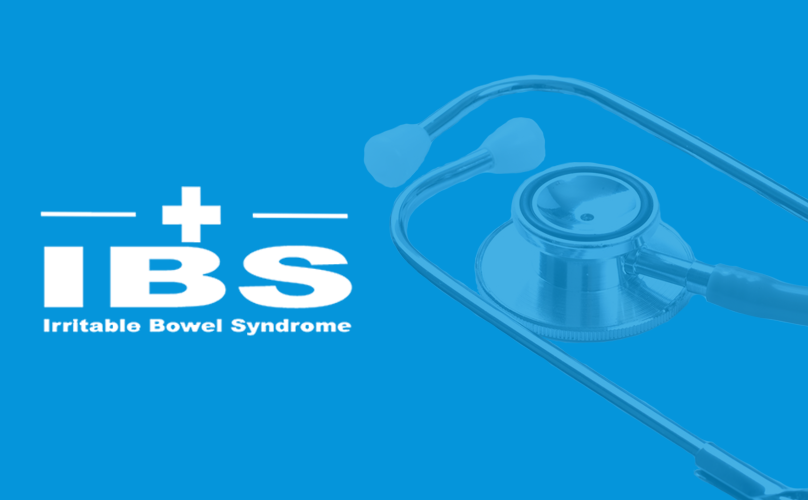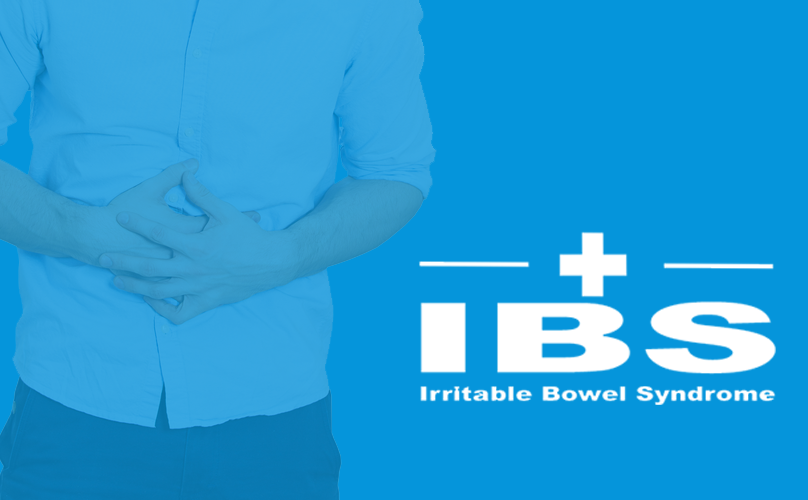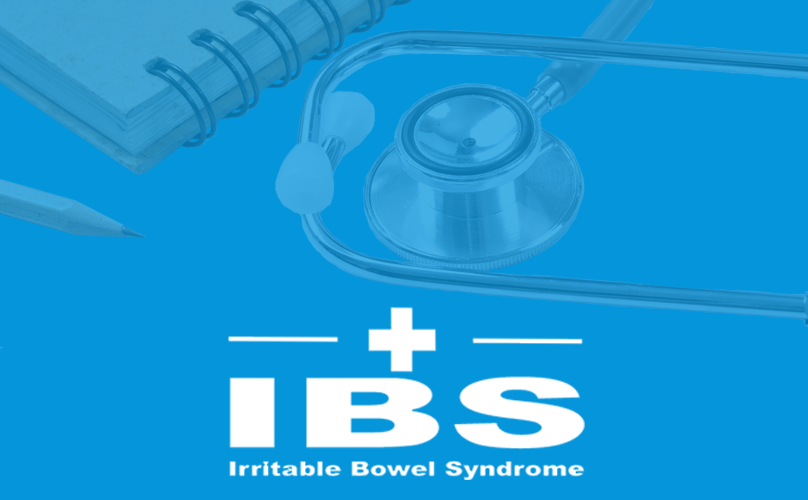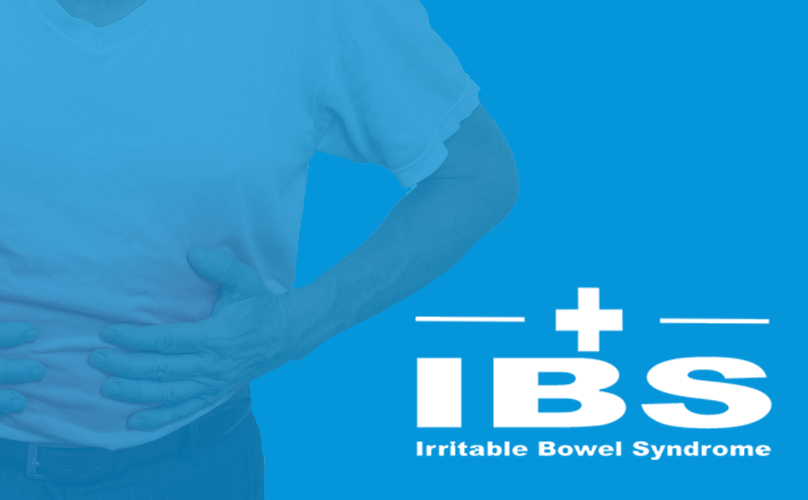A Guide To
IBS
Do you suffer from a regular bloated feeling and stomach pains, constipation or diarrhoea? Is it as regular as clockwork?
It may be time to face facts – you could be suffering from Irritable Bowel Syndrome.
Irritable Bowel Syndrome, or IBS for short, is unfortunately an uncomfortable and long-term medical condition that is becoming more and more common in the UK. It can be a very unpleasant condition, but with a proper understanding of its causes and symptoms, you can continue to live a healthy, normal life.
For some people the condition improves gradually over a few years, though some people suffer from chronic IBS, which means they have it for life. It is a condition that usually appears in your twenties or around the age of 30, and is prevalent in both men and women. Research suggests that one in five people will experience IBS at some point in their life.
It may be time to face facts – you could be suffering from Irritable Bowel Syndrome.
Irritable Bowel Syndrome, or IBS for short, is unfortunately an uncomfortable and long-term medical condition that is becoming more and more common in the UK. It can be a very unpleasant condition, but with a proper understanding of its causes and symptoms, you can continue to live a healthy, normal life.
For some people the condition improves gradually over a few years, though some people suffer from chronic IBS, which means they have it for life. It is a condition that usually appears in your twenties or around the age of 30, and is prevalent in both men and women. Research suggests that one in five people will experience IBS at some point in their life.

What Causes IBS?
While a root cause hasn’t yet been determined by medical experts, there is a common agreement that it is a result of your stomach becoming sensitive while digesting certain foods.
One belief is that because your stomach has grown sensitive to food travelling through your gut, it alters the natural digestive cycle. This causes your gut to either digest food too slowly or too quickly, causing the symptoms we associate with IBS.
It is commonly accepted that food moving too quickly through your digestive system causes diarrhoea, while you may experience constipation if the process has slowed down. Either way, you are bound to feel the symptoms of sharp stomach pains and irritation.
IBS may also be triggered by psychological factors, such as when you’re stressed or excited. This can cause your chemical make-up to affect your bodily functions, including how your digestive system works. Other causes include alcohol, soda and spicy foods.
One belief is that because your stomach has grown sensitive to food travelling through your gut, it alters the natural digestive cycle. This causes your gut to either digest food too slowly or too quickly, causing the symptoms we associate with IBS.
It is commonly accepted that food moving too quickly through your digestive system causes diarrhoea, while you may experience constipation if the process has slowed down. Either way, you are bound to feel the symptoms of sharp stomach pains and irritation.
IBS may also be triggered by psychological factors, such as when you’re stressed or excited. This can cause your chemical make-up to affect your bodily functions, including how your digestive system works. Other causes include alcohol, soda and spicy foods.

Post-Infectious IBS
Post-infectious IBS, or PI-IBS, is an uncommon subgroup that causes chronic IBS after a bout of gastroenteritis or food poisoning. Bacteria and infection can sensitise the bowels after infection. It is believed that around 10% of people that suffer from a bacterial infection to the gastric area will become affected by PI-IBS, even when previously suffering with a normal bowel.
There are certain risk factors that determine if the cause of IBS is related to a bacterial infection, including the length that you were infected and the toxicity in your body. A medical examiner would be able to help answer this.
PI-IBS is often caused by food poisoning, especially at hotels and restaurants where food has become contaminated through poor storage or where food has been undercooked. It is not uncommon for holidaymakers or travellers to return from being away with PI-IBS.
There are certain risk factors that determine if the cause of IBS is related to a bacterial infection, including the length that you were infected and the toxicity in your body. A medical examiner would be able to help answer this.
PI-IBS is often caused by food poisoning, especially at hotels and restaurants where food has become contaminated through poor storage or where food has been undercooked. It is not uncommon for holidaymakers or travellers to return from being away with PI-IBS.

What Can You Do To Relieve IBS?
If you’re worried that you have IBS, it is not the end of the world. As we mentioned before, it is a common medical condition that millions of people in the UK are living with.
What you need to be ready to do is make some lifestyle changes. Without making any changes to what you eat and drink, not to mention your mental health, you could find the condition worsening over time instead of improving.
One way to manage your IBS is to understand its triggers. For instance, if you suffer from a bout of IBS-related constipation after consuming fizzy drinks, it may be time to cut down or even cut out soda from your diet. If you are constantly suffering from diarrhoea during stressful periods at work or college, you may need to consider stress management activities.
No matter what the trigger, what is important is that you maintain a healthy diet and regular exercise to lessen the impact on your body. A healthy body and mind is more likely to handle IBS better than an unhealthy one.
What you need to be ready to do is make some lifestyle changes. Without making any changes to what you eat and drink, not to mention your mental health, you could find the condition worsening over time instead of improving.
One way to manage your IBS is to understand its triggers. For instance, if you suffer from a bout of IBS-related constipation after consuming fizzy drinks, it may be time to cut down or even cut out soda from your diet. If you are constantly suffering from diarrhoea during stressful periods at work or college, you may need to consider stress management activities.
No matter what the trigger, what is important is that you maintain a healthy diet and regular exercise to lessen the impact on your body. A healthy body and mind is more likely to handle IBS better than an unhealthy one.

What Can You Expect From Living With IBS?
Irritable Bowel Syndrome is one of the most unpredictable medical conditions you could have, and unfortunately that means you won’t always be prepared for the next flare up. It can be as common as every day, to no pains for weeks on end.
If you feel that your IBS is starting to affect your daily life, you may want to consider visiting a doctor. A lot of people experience depression and anxiety as a result of IBS, especially in social situations or in the workplace.
It’s nothing to be embarrassed about – talking with a doctor may help you understand more about how to manage it. A doctor will also be able to give you more insight into food choices and exercise tips to keep your IBS at bay.
If you feel that your IBS is starting to affect your daily life, you may want to consider visiting a doctor. A lot of people experience depression and anxiety as a result of IBS, especially in social situations or in the workplace.
It’s nothing to be embarrassed about – talking with a doctor may help you understand more about how to manage it. A doctor will also be able to give you more insight into food choices and exercise tips to keep your IBS at bay.
What Can You Do?
Ramsey Norbert work with some of the UK’s leading gastrointestinal experts to provide medical legal reports for both Claimant & Defendant solicitors. So if you’re a solicitor looking to instruct, contact Ramsey Norbert today.